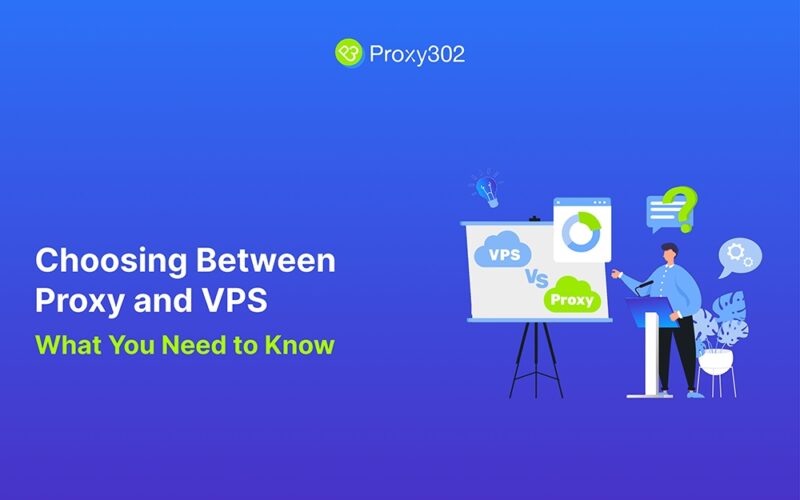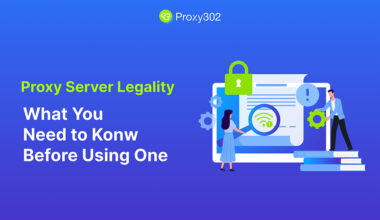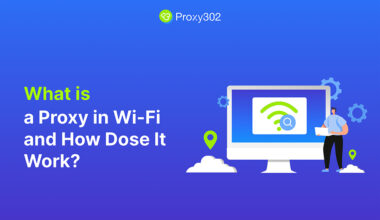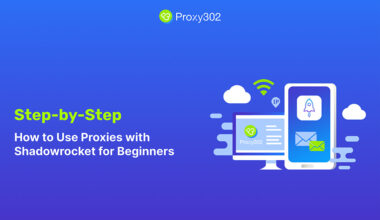When it comes to managing online activities, both proxies and VPS (Virtual Private Servers) are popular tools. However, they serve different purposes and have distinct advantages and limitations. Below is a detailed comparison to help you decide which is better suited for your needs.
1. What Are Proxies and VPS?

- Proxy: A proxy like Proxy302 acts as an intermediary between your device and the internet. It routes your traffic through a different IP address, masking your real IP and providing anonymity. Proxies are commonly used for web scraping, geo-restriction bypassing, and privacy protection.
- VPS: A VPS is a virtualized server that provides dedicated resources (CPU, RAM, storage) within a shared physical server. It is often used for hosting websites, running applications, and managing multiple accounts.
2. Key Differences
| Feature | Proxy | VPS |
|---|---|---|
| Functionality | Routes traffic through an IP | Provides a virtual server |
| Anonymity | High | Moderate (depends on setup) |
| Performance | Limited by proxy server | High (dedicated resources) |
| Cost | Generally cheaper | More expensive |
| Use Cases | Web scraping, privacy | Hosting, app deployment |
a. Functionality
- Proxy: Acts as an intermediary, routing your internet traffic through a different IP address.
- VPS: Provides a virtualized server with dedicated resources for hosting or running applications.
b. Anonymity
- Proxy: Offers high anonymity by masking your real IP address.
- VPS: Provides moderate anonymity, depending on how it’s configured.
c. Performance
- Proxy: Performance is limited by the proxy server’s capacity and speed.
- VPS: Delivers high performance due to dedicated CPU, RAM, and storage resources.
d. Cost
- Proxy: Generally more cost-effective, especially for small-scale tasks.
- VPS: More expensive due to the dedicated resources and infrastructure.
e. Use Cases
VPS: Suitable for hosting websites, running applications, and managing multiple accounts.
Proxy: Ideal for web scraping, bypassing geo-restrictions, and privacy protection.
3. Advantages of Proxies
- Anonymity: Proxies hide your real IP address, making them ideal for tasks requiring privacy.
- Cost-Effective: Proxies are generally more affordable than VPS, especially for small-scale tasks.
- Ease of Use: Setting up a proxy is straightforward and doesn’t require technical expertise.
4. Advantages of VPS
- Performance: VPS offers dedicated resources, ensuring high performance for resource-intensive tasks.
- Flexibility: You can install and run any software or application on a VPS, making it highly versatile.
- Security: VPS provides better isolation and security compared to shared hosting or proxies.
5. When to Use Proxies vs. VPS
- Use Proxies If:
- You need anonymity for tasks like web scraping or bypassing geo-restrictions[.
- Your tasks are lightweight and don’t require significant resources.
- You’re on a budget and need a cost-effective solution.
- Use VPS If:
- You’re hosting a website or running resource-intensive applications.
- You need a secure and isolated environment for sensitive tasks.
- You require full control over your server and its configurations.
6. Combining Proxies and VPS
For advanced users, combining proxies and VPS can offer the best of both worlds. For example, you can use a VPS to host your applications and a proxy to manage traffic routing, ensuring both performance and anonymity[9].
Conclusion
The choice between proxies and VPS depends on your specific needs. If you prioritize anonymity and cost-efficiency, proxies are the better option. However, if you need high performance, flexibility, and security, a VPS is the way to go. For complex tasks, consider combining both tools to maximize their benefits.
Ready to overcome geo-blocking?👉 Start Your Free Trial Now 👈and unlock a world without digital borders.









2 comments
Great breakdown of the differences between proxies and VPS. One nuance worth noting is that while proxies are ideal for anonymity, a well-configured VPS can offer a decent level of privacy too—especially when paired with the right tools. It really comes down to the specific task you’re tackling and how much control you need over your environment.
Thanks for the valuable information. It was easy to understand and super useful.